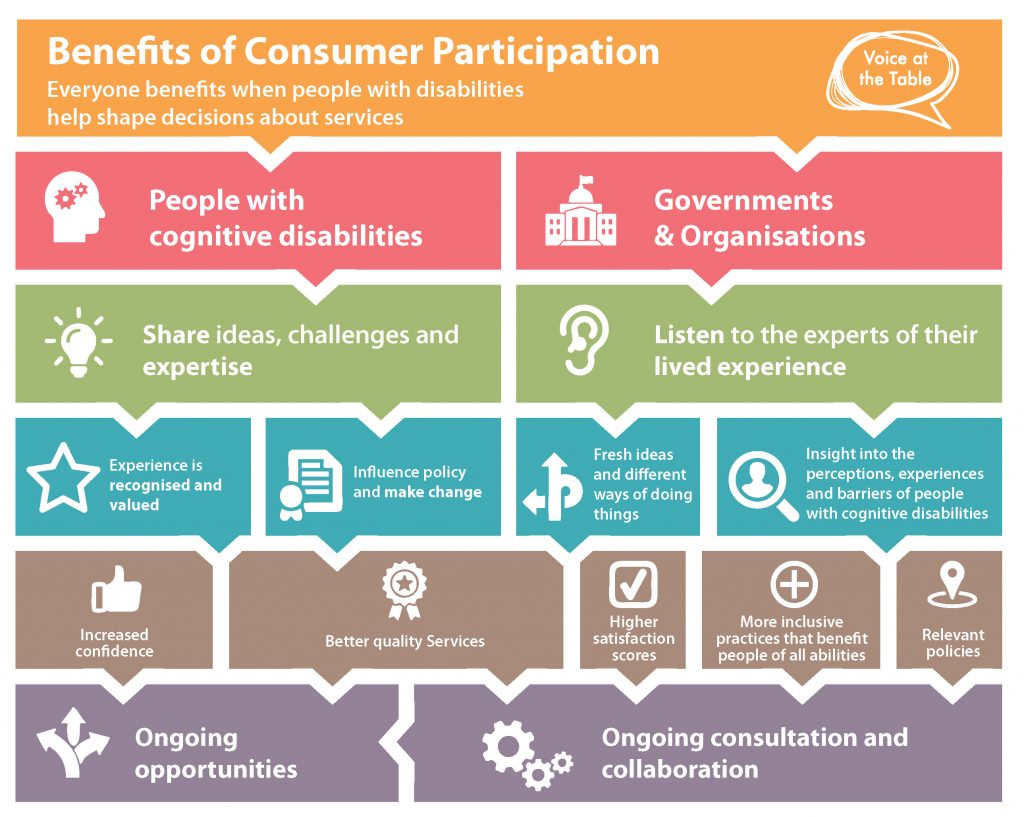
Voice at the Table fills a much needed gap. It provides resources to people with disability so they can be actively involved on boards, advisory panels and organising committees. But perhaps more importantly, Voice at the Table also provides resources to boards, advisory panels and organising committees so they can become accessible to people with disabilities.
Dr. Piers Gooding Postdoctoral Research Fellow, Melbourne Social Equity Institute, University of Melbourne
About Voice at the Table
Voice at The Table aims to increase the number of people with cognitive disabilities sitting on boards, committees and advisory groups within community organisations, local government, and service providers.
We partner with teams and projects within community organisations to help;
- build their capacity to be inclusive, and
- provide meaningful opportunities for people with cognitive disabilities to advise and influence policies, programs and service planning, development, delivery and evaluation.
In 2018, we are working with a neighbourhood house, a community health centre, local councils, an arts organisation and a University. If your organisation is interested to work with Voice at the Table, please get in contact.
Why is it important?
Civic Participation is a Human Right. But historically, people with cognitive disabilities have not been provided the opportunity to act as representatives, inform policy development or have real input into the services they use. On the rare occasion they do, many express strong concerns about the process. They often find that meetings are not run in ways that support real inclusion, information is not accessible and their opinions while listened to are frequently not acted on, leading to feelings of tokenism and disenfranchisement.
Article 29 of the UNCRPD (2008) enshrines the right of people with disabilities to “effectively and fully participate in political and public life on an equal basis with others”. However, people with cognitive disabilities face multiple barriers to achieving equal and meaningful civic participation. These barriers include:
- Negative attitudes
- Limited understanding of the challenges faced by people with cognitive disabilities
- Inaccessible information
- Lack of effective support
- Problems with accessibility
- Limited availability of training and resources
- Few opportunities to practice learned skills
Voice at the Table works to redress these barriers and increase opportunities for people with cognitive disabilities to inform and advise government and communities.
Learn about civic participation as a human right and Government policy
What are the benefits?
People with cognitive disabilities, service providers, governments and communities can all benefit from consumer participation.

Read our top ten tips for inclusive practice
